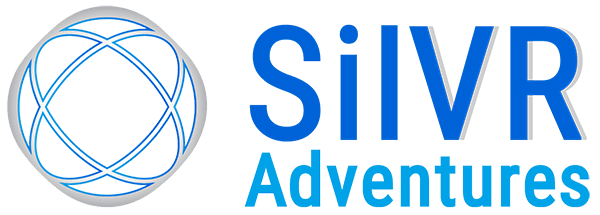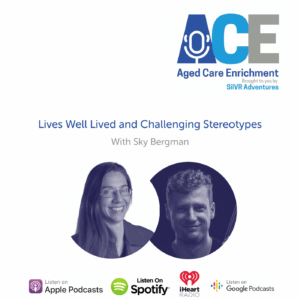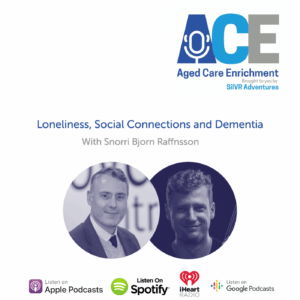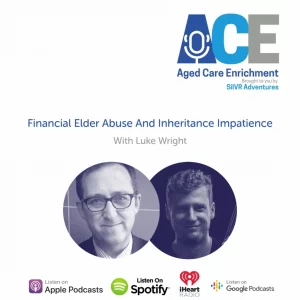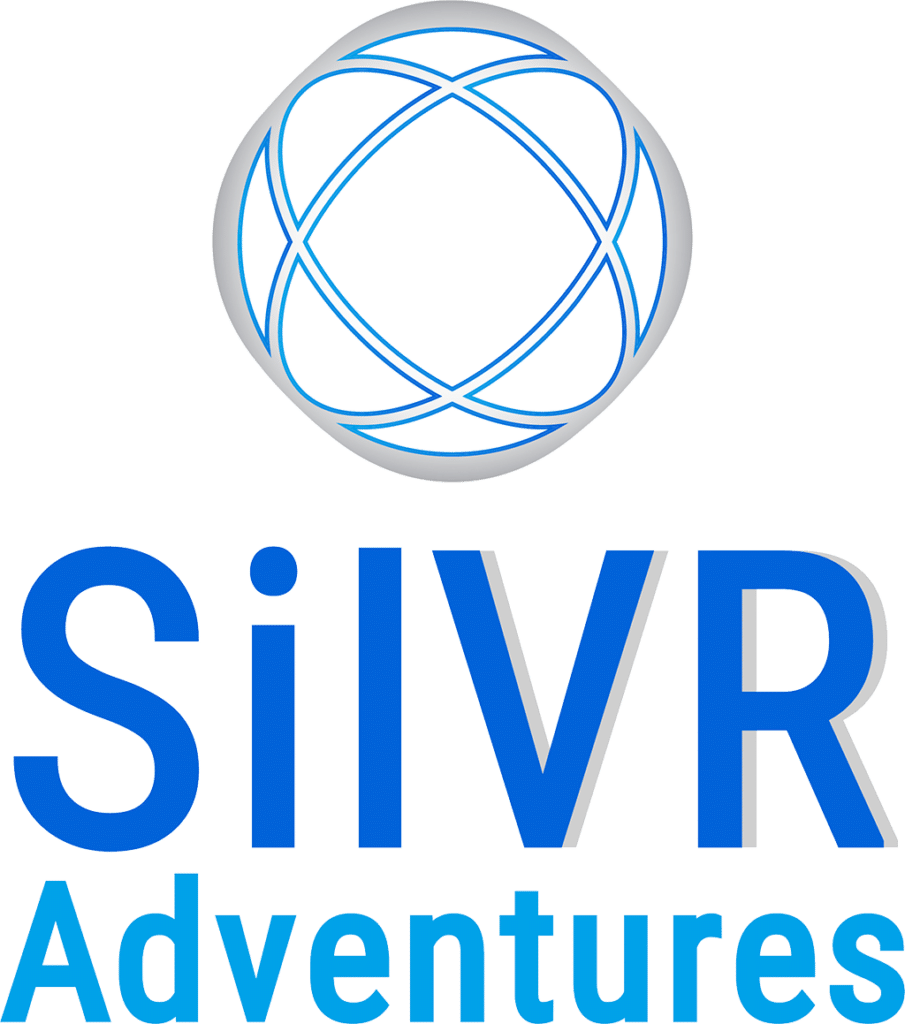Darren Evans is the CEO and founder of After Cloud, a closed group digital sharing platform for people at the end of their lives and beyond. Through a phone app, users can share pictures, videos and audio with a specific group of loved ones and even schedule messages to arrive after the sender has passed away.
After Cloud was originally conceived of as a kind of memory box, and a tool to help people grieve and remember loved ones. However Darren explains that it’s value is not just for the family, but also those at the end of their lives.
In this conversation Darren talks about how technology can create a digital legacy, and help users reflect and find meaning at the end of life. It formed part of a double episode with Melissa Reader on how we can enrich the end of life.
Transcript
Ash de Neef: Darren. Thank you so much for joining us today on the podcast.
Darren Evans: It’s a pleasure. Good to meet you.
Ash de Neef: You too. Now you’re here today to talk to us about After Cloud and I believe the story of After Cloud starts with the passing of your mother-in-law.
Can you give us a bit of the story there?
Darren Evans: Sure. I was working in a corporate world, basically, just continuing in a, kind of professional capacity. And at the same time we were looking after my mother-in-law, who had a very aggressive form of Lewy body dementia. We were caring for her essentially in home, my wife and myself and our son, Dylan, who was 11 at the time. And it was very aggressive. So in a kind of six month, period, I guess there was a very rapid decline.
Anyway, post death I guess it was the first time really as a family unit, we grieved as a family unit, although my wife and I had experienced death in the past, it was the first time collectively, all three of us had experienced grief. And after the funeral, we kind of looked around for, as you do, you have to go through someone’s possessions and we came across a photo album. And whilst we’ve got lots and lots of wonderful memories, that was all that was there in terms of her mum’s legacy.
We’ve actually found since, two short videos one of her mum dancing at a party – a very short clip, about 10 seconds there or thereabouts. and then another short clip of a few seconds of her kissing my niece’s cheek, which we have. But that is the extent of of the digital legacy of my mother-in-law.
And it was my son actually Dylan, who was 11 at the time. He said, “dad, you work in technology.” I’ve been working in technology in health and social care for about 20 years. And he said, “look, can we not do something that will assist people in a similar predicament, in the same situation, essentially?”
So that’s where the light bulb moment happened really.
Ash de Neef: Yeah, that’s fantastic. So it started as a desire to allow people to make a more lasting digital footprint of someone’s life.
Darren Evans: Yeah, I guess when Dylan mentioned this, my first instinct was there must be something. That does this already. And of course there is lots of social media platforms but they’re all public, you know that then they’re not secure. They are secure, but they’re not closed group setting in that sense.
So I went out and I spoke to lots of contacts that I’ve got right across health and social care. I spoke to hospices various chief execs of large companies. And what I found was there’s lots of clinical systems in place that adopt clinical measures for patients, but there was nothing really for individuals and families at end of life. And that was really where, you know, we thought, “Oh okay, then there must be some, need and requirement here.”
And that’s when we started speaking in a bit more detail to people, a little bit more
research.
Ash de Neef: Fantastic. And so what were the kind of early steps to, to developing the software and developing the idea?
Darren Evans: So really it was a case of, okay what are we trying to do here? We’re trying to preserve memories really. And I guess the initial notion was a digital memory box, if you will. Because at end of life, and people in the palliative space will know that, you create what is known as effectively a memory box. Cards for the future, and letters, and all these sorts of things.
So the initial thought was let’s create a digital memory box that does a similar thing, but digitally, so that it can start to create this, digital legacy of sorts. Obviously it’s evolved since then, but that was the initial thought.
Ash de Neef: Fantastic. Those things sound like on the surface level they might be for the family of the person who’s passing away. But have you seen, the people who are storing their own memories and their own data, and they’re also getting benefits out of it?
Darren Evans: Yeah, absolutely. It’s an interesting one because what we found is, well two things really.
One in the palliative space we’ve seen is very cathartic because people use it for journaling, for storytelling, for telling their life story to their relatives, to their loved ones. But they found it of immense relaxation actually. It reduces stress and related anxiety and therefore improves mental well-being, because of the process that they’re going through.
What we’ve also found is that people at end of life don’t necessarily want to admit that they are dying, they want to live moments, They want to live life to the full. And that’s another benefit of it in that they can capture those moments and share that life story and the things that they do in that sense with their family and loved ones as well.
And then in dementia, what we’ve also found is that it’s used again for journaling storytelling, but also from a practitioner perspective, it’s used for art therapy, dance therapy, music therapy, reminiscence therapy.
Lots of different ways there that can be captured and then shared again with relevant stakeholders. It doesn’t necessarily have to be family members. It can be shared in whatever capacity, but in the knowledge that is secure and closed group, I think that’s really the important thing here.
Ash de Neef: Yeah. Can you give us some examples of the sorts of things that art therapy or reminiscence therapy, how they could be combined with the technology
Darren Evans: Yeah. From a practitioner perspective, they can take digital stills or video of those sessions, those moments, those elements of therapy. Really they can be captured in the app itself to create a moment. It’s made up of multiple content types. So it’s not just a still, or a video or an audio it’s all of those things combined.
So as an example, we’ve got one guy. In fact, we’ve got an interview of Nick. And what he does is he’s going through his photo album and he’s taking a digital of the photo as a moment, but then he’s capturing his voice over it, explaining who is in that photo. And what’s going on and the time and the period and embellishing it really as a story.
And then he’s sharing that for his sons. He’s got two sons. He’s doing that with his holiday pictures. He’s doing it with planes that I know he likes, he’s a plane enthusiast. So yeah, he’s embellishing stories in that sense. We’ve got other people that are sharing family recipes as an example.
We’ve got we’ve actually which I find fascinating – we’ve got one guy who heads up a charity here in the UK and he’s recently become a father. And he’s got his wife to start recording moments of the baby. So where we started at end of life and palliative. It’s pivoted to be utilised in both palliative and dementia related services.
But now actually what we’re seeing is because you’re building a life story effectively, digitally for your legacy. It can be anyone of any age for any purpose. and I think that’s really where it starts to come to life. This will probably be the first baby I think captured in After Cloud.
And what a journey that’s going to be.
Ash de Neef: Yeah. that’s fantastic. I liked the way that you were talking about the person, narrating over the photos, it kind of brings those other memories to life, doesn’t it. It breeds new life into those moments.
Darren Evans: It really, really does. If you can imagine everybody now will have their mobile phone on them. And if you’re on holiday, you start taking photos. What I tend to find actually is most people will have a complete library of images and photos in their digital storage on their phone.
But that’s it. There’s stills they do enhance memory and they take you back to that point. But embellishing those with voice, with audio. You can even dictate a letter in app. You can write or dictate I tend to show people how to dictate because it’s just so easy to journal then.
But all of those things combined really do enhance that story. And I think the thing is, as we move forward, there are other plans in store for After Cloud. But what we’re effectively doing is that digital legacy for the individual can be told to future generations.
Ash de Neef: Yeah wow. You can imagine a situation where it becomes quite normal for everyone to have their own sort of digital archive that can be accessed. Or let’s look at what grandpa’s archive had in it. And let’s go back through that and hear his voice and you can really connect people throughout generations that way.
Darren Evans: Yeah, absolutely. It’s an interesting thing, actually, Ash we just published a blog post, so our March guest blog post on After Cloud. And it’s written by Dr. Elaine Kasket, professor. And she’s an expert I would suggest in digital legacy.
And she made me aware of the fact that within five years – and it’s an interesting read. But in five years Facebook will have more memorialised accounts than it will have active live accounts, which I think is an astonishing fact within five years time.
And I can’t speak for obviously other businesses and other companies, but this is public setting. And when someone dies, you have no right or authority on that account. It’s gone. It’s closed. It’s it becomes defunct almost, as a Memorial kind of page.
The difference being in After Cloud is you can post to a future date. So that going back to that, digital memory box, It’s there, but you can also post to the future.
So if you choose a date in the future, we’ve decided as a business that we’re limiting it currently to 10 years. Because I think ethically we wouldn’t want to go beyond 10 years. So, at the moment, we’re thinking 3, 5 and 10 years for individuals to choose from. But that might extend as we progress.
Ash de Neef: Yeah, that’s fantastic. And you mentioned something before that. I find quite interesting, the idea of audio. And I think for me, I have several audio recordings of really important moments in my life that I’ve taken without any video aspect of it. I always find them to be much more immersive.
I can imagine for some people that being able to hear someone’s voice after they’ve passed away might be a really powerful a powerful thing to have at hand.
Darren Evans: It really is. Yeah. It’s interesting because our strap line on the website is “it’s her voiceI miss the most. I wish I could hear her again.”
And those, aren’t my words. They’re the words of Roberta Roccella, who is on our advisory board. And she’s had a quality of life of HC-One. And HC-One are one of the largest residential providers in the UK.
And when I started talking about After Cloud at the very beginning, I wanted an advisory team that would help and assist me and Roberta came to mind through another contact. And we started talking and she told me her story and she lost her mom at a very young age.But she had a voice recording of her mum from a voicemail on a tape and she lost the tape recording. And I just, I couldn’t believe it when she told me and I wrote it down hurriedly.
“It’s her voice I miss the most. I wish I could hear her again.” And that became, I asked obviously permission from Robbie and she very gladly said yes, absolutely.
Because it is. You do miss someone’s voice and over time, it gets lost, I think that’s the beauty again of After Cloud is that nothing gets lost. It’s held in the cloud it’s secure and and people can utilise it.
Ash de Neef: Yeah, that’s fantastic. And we had Robi on the podcast in the first season. I’m not sure what number episode it might be number seven, number eight, but that’s a nice little tidbit to add to her story there.
Darren Evans: She’s great. She really is great. And as I say, head of quality of life, it’s her passion. It just comes to the fore when you talk to Robi she’s absolutely great. Similarly though, on our board, in fact, we have Leeroy William who is president of the Australian and New Zealand society of palliative medicine.
He’s also an adjunct professor in two universities and, just held in very high regard. Similarly Joe Wood who’s a palliative social worker. So what we wanted to do was take best practice, where we could from an advisory team that could assist us.
Now we’ve only had I think two meetings because we’re still in beta and we’re still, essentially not, we are live and people can download the app and utilise it. Absolutely. But we’ve not really launched as yet as such.
So we’re in that cusp, we’re due to launch in June, but people can absolutely utilise the app. right now, if they wanted to.
Ash de Neef: Fantastic. And having so many people with palliative care connections on your board, do you feel like After Cloud has the potential to. change the way that people are thinking about the end of life? Or at least in the way they’re preparing for the end of life?
Darren Evans: Yeah, absolutely. I think it’s really essential that we as a society understand that death is a part of our natural journey. Gone are the days of the Victorian days where people dressed in black you could see that they were mourning. Back in the day, people would close their curtains and you would know that house was in grief.
We don’t use those practices in modern day life. Now you don’t know if someone’s grieving or not. And I think grief in the workplace is another issue in its own. But I think what’s happened in this COVID period, has made everybody aware of their own mortality.
COVID has been presented to us by the media in a multitude of colours on the TV and made everybody, “Oh my gosh, this is real, this I could die.”
And I mean, will writing has gone up. The stats show that a lot of people and certainly younger people, I think now are a lot more aware of death itself. I think the more we can do to raise the conversation and create that normality about death and dying and bereavement and grief and all of the things that surround that the better really.
And I think in fact, one of our interviews with Tommy Dunn who’s a BEM for his work in dementia. He raises that as an important issue in the fact that he doesn’t think about it as death. He actually what After Cloud has allowed him to do is talk about it with his family naturally rather than worry about it.
Ash de Neef: Yeah. That’s definitely one of the challenges of navigating this… how do you speak about it in a way that’s that doesn’t feel too uncomfortable?
Darren Evans: There’s a wonderful game. That’s been created by two ladies in the states called the Death Deck, which I think is fantastic. But it just helps and assists in raising the important questions. But in a sort of game scenario and it normalises the conversation. It’s fantastic.
It’s actually been played online at the moment through, dare I say it, Clubhouse. But in itself, in its own right, it comes in a little box called the Death Deck. Really fantastic. And it does, it helps to raise that conversation.
And of course, if you can then utilise the app to start creating memories for the future, or go back and talk about past history again for future generations or right now for family and relatives and loved ones then all the better.
Ash de Neef: Fantastic. And looking to the future, what do you see? How do you see the end of life process changing for people? What do you imagine the next couple of years will look like in that space?
Darren Evans: There’s definitely a shape-shift. What we’re seeing at the moment, is a whole social movement coming to the fore, in terms of a holistic end of life process. I started on this journey, I’d been working in health and social care, as I said for 20 plus years. But my knowledge of end of life was quite limited, apart from death itself.
But my knowledge of, I don’t like calling it an industry, I’d much rather it, we see it as a community – but death doula. The doula was a new word to me. I’d never heard it before. And you know, there are soul midwives, soul companions, death doulas, end of life practitioners. And now of course I’ve had many, many conversations with all of these, what I consider professional practitioners. I’d like to see a certification process officiated.
But I definitely see them being more involved in end of life care. We’re on that cusp. You know, just last week Elvis Presley’s granddaughter became a qualified certified death doula. And again, that’s raising the bar, it’s getting it out there in the media. So what I see anyway is Canada and Australia paving the way you guys are ahead of the curve.
And I think you’ve been ahead of the curve in, in health and social care per se, in terms of person-centered care. And I think you’re also doing this now at end of life and showing others around the world, how it should be. And I can certainly see, the death doula space emerging and playing an important role in that end of life process or an assistive role in that end of life process.
Ash de Neef: Absolutely. That was a word that was very new to me. And I learned that on the podcast as well about doulas and end of life doulas. And what’s the sort of the treatment of assisted dying in the UK at the moment. Is that a legalised thing or what’s the status?
Darren Evans: No it’s, it’s not legalised at all in the UK. Yeah. I know that it’s changing in other parts of the world and again we may follow suit. But currently, no, it’s not legal at all in the UK.
Ash de Neef: Okay. In some parts of Australia, it is. It’s on a state-by-state basis, but it feels like it’s still quite a contentious issue here. And I imagine the UK, it is as well.
Darren Evans: Yeah, very much. So I think, hospices in UK do a fantastic job of managing end of life processes or palliative care in the community over years in some instances. But no, I think that’s, an area that will legally need to be looked at.
The one thing I think that UK does quite well is take a step back and look at best practice in other parts of the world and see how that unfolds. So I think that’ll probably be the same in that sense.
Ash de Neef: Great Well, Darren, I think we’re almost out of time and we’ve got a lot of great information here about After Cloud. Is there anything else that you wanted to talk about today?
Darren Evans: No Ash. Your questions have been great. It’s been fantastic to be interviewed by you on the podcast. I wish you every success with the podcast, because it seems to be going fantastically well.
Just to say that, if people want to download the app, it’s on the app store. Whether it’s iOS or Android feel free. It’s called After Cloud. If you wanted to look at the website, it’s myAfter Cloud.com. But apart from that, thank you very much.
Ash de Neef: Perfect. Thanks so much Darren.
